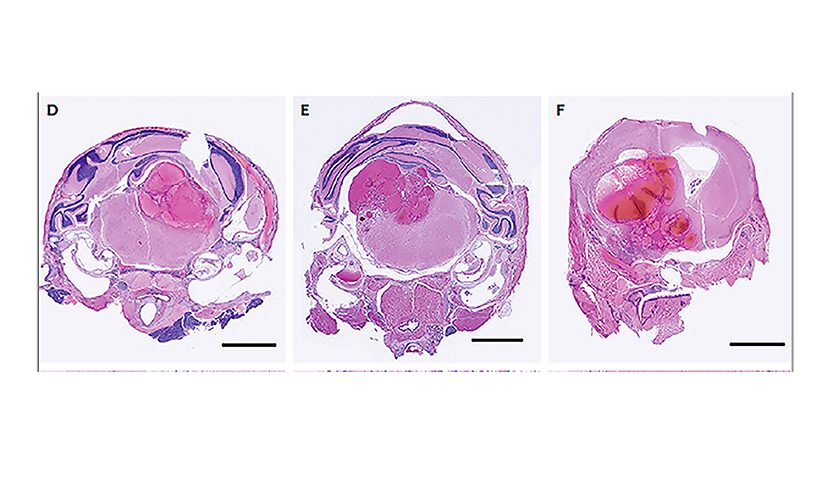Teams from the Paris Brain Institute and Pitié-Salpêtrière Hospital AP-HP, coordinated by Dr Matthieu Peyre and Prof Michel Kalamarides, have studied the presence of mutations in the PIK3CA gene in cavernomas. This work is published in the New England Journal of Medicine.
Cavernomas are low-flow cerebral vascular malformations consisting of abnormally enlarged capillary cavities without intervening brain parenchyma; the condition affects 1 in 200 to 250 people. Although mainly characterised by subclinical bleeding, cavernomas can lead to epileptic seizures and haemorrhagic strokes with significant neurological complications, particularly when they are located in the brainstem.
Cavernomas can occur in isolation or as part of a familial genetic disease. Mutations occurring in a familial context concern in 80% of cases the CCM genes. The genetics of sporadic cavernomas, which account for up to 90% of cases, is poorly understood.
In order to study meningeal tumorigenesis and meningiomas (the most frequent tumour of the central nervous system, of which they are experts), Dr Peyre and Prof Kalamarides have generated two new genetically modified mouse models of meningiomas by activating mutation of the PIK3CA and AKT1 genes in the PI3K-AKT-mTOR pathway.
The unexpected observation of typical cavernomas identical to human lesions prompted them to investigate the possible involvement of PIK3CA and AKT1 mutations in sporadic human cavernomas. They identified 39% PIK3CA mutations in a series of 88 sporadic cavernomas. Furthermore, their results shed new light on the potential cell of origin of cerebral cavernous malformations that was previously considered to be of endothelial lineage. They have shown that it is in fact PGDS-positive pericytes that cause cavernomas in their models by disorganisation of the neurovascular unit.
Their results may provide a better understanding of the biology of sporadic cerebral cavernous malformations by highlighting the major role of PIK3CA mutations in them, rather than that of the CCM genes, initially considered to be predominant.
This result, which was corroborated by a preclinical model, opens new perspectives, still to be validated, for the development of targeted therapies for the treatment of sporadic human PIK3CA-mutated cavernomas that are refractory to surgery and radiotherapy or radiosurgery and lead to frequent complications. PIK3CA inhibitors have indeed shown promising results in patients with CLOVES syndrome (PIK3CA-related hypergrowth syndrome) as well as in patients with a wide range of tumours.







